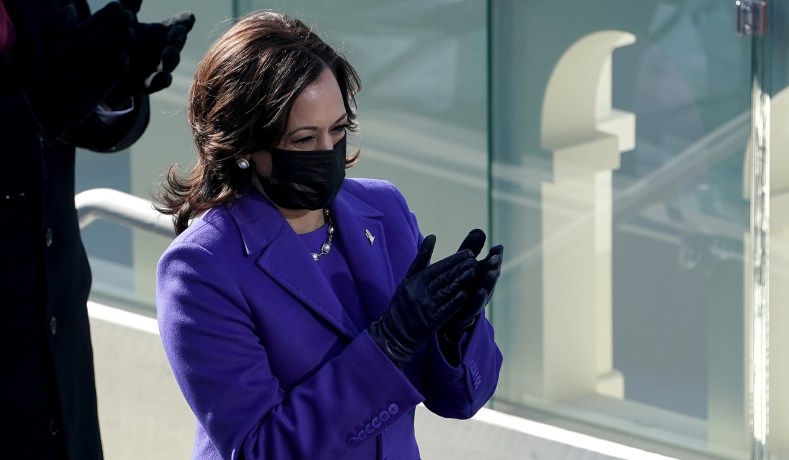
I am so grateful for Dan’s column today, which pores over questions about the imminent impeachment trial that have been bouncing around my head, too.
To borrow Dan’s terms for dividing the competing camps on the fundamental constitutional question, I have long adhered to the originalist argument that government officials, including the president, may properly be impeached after they have left office. In addition to colonial impeachment provisions, I recounted in Faithless Execution that the Framers were influenced by the British impeachment experience. Their contemporary example was Warren Hastings, whose impeachment by Parliament, led by Edmund Burke and based on high crimes and misdemeanors, occurred after Hastings was no longer Britain’s governor-general of Bengal.
That is part of why I argued in 2016 that congressional Republicans ought to impeach former Secretary of State Hillary Clinton based on the emails scandal, among disreputable conduct. I had no thought that they’d actually impeach her, but raising the subject in the context of the Constitution’s disqualification penalty for impeached officials would, to my mind, have underscored her unfitness to be president. (I also argued that, if the roles were reversed, Democrats would not hesitate to impeach a potential Republican presidential candidate just because that candidate was no longer in office.)
I’d note that the only reason for pushing forward with former President Trump’s impeachment is to underscore his unfitness to be president in the future. As with Mrs. Clinton, the chance of the penalty’s actually being applied to Trump is nil — the votes will not be there. But it may dawn on Republicans that two can play at this game. Democrats have a tendency to blaze new trails only to find, to their chagrin, that the blade cuts both ways.
In any event, I am not holding my breath for a written opinion from Chief Justice Roberts, even though I agree with Dan that it would be beneficial to have one regarding such fundamental questions as (1) whether the Senate has jurisdiction to hold an impeachment trial for a former president who is now a private citizen, and (2) whether, if he is asked by the Senate to preside over the trial, the chief justice has the authority to decline on the rationale that it is not a presidential impeachment trial. While these questions are clearly related, they are separate. Even if one concludes (as I do) that the Senate does have jurisdiction to try a former president, it does not necessarily follow that the trial would be a presidential impeachment of the kind that the Framers intended the Supreme Court’s chief justice to preside over. The latter, I believe, is reserved for the incumbent president.
As Dan notes in recounting the late Chief Justice William Rehnquist’s ruminations on the matter, the Framers considered but rejected the scenario of having the federal judiciary preside over impeachment trials. It was thought better to leave this essentially political proceeding to the judgment of the Senate.
In terms of the trial’s public legitimacy, however, leaving it to the Senate created an obvious problem: The presiding officer of the Senate, the vice president of the United States, would have a conflict of interest. If the president were impeached and removed, the vice president would accede to the presidency. Thus the vice president would have a motive to influence the trial in favor of conviction.
It is to avoid this specter that the Constitution provides for the chief justice’s participation. The role is more ceremonial than substantive. The Senate retains plenary authority over impeachment and may overrule the chief justice (just as in non-presidential impeachments, in which the chief justice has no role, the full Senate may overrule the presiding official).
Unlike an incumbent president’s impeachment trial, a Senate trial of former President Trump would present no conflict of interest for the current vice president. Trump is out of office. Were he convicted, it would have no effect on Vice President Kamala Harris. President Biden would remain president.
Consequently, I surmise that Chief Justice Roberts, who is characteristically risk-averse and whose top priority has been keeping the Supreme Court out of political frays, would be inclined to say no if asked to preside over the trial, unless the Senate can convince him otherwise by a compelling legal argument. To do that, the Senate would have to establish that the presidential impeachment referred to in Article I, Section 3, refers to the office the impeached official has held, not to the person presently holding the office. To the contrary, the plain text cuts against this proposition: “When the President of the United States is tried, the Chief Justice shall preside” (emphasis added). Donald Trump is not the president of the United States.
So, back to the politics of this political process. If Chief Justice Roberts is not visibly managing the trial, giving it the patina of judicial detachment and rigor, what we’ll primarily be left with is this: democrats conducting a blatantly political trial of their archnemesis, President Trump, even though he’s no longer in office, over the objection of many if not most Republicans, without an overwhelming consensus in the country in support of impeachment. It would take place despite significant dissent from many scholars about whether the proceedings are constitutionally legitimate, and the reaction of many Republicans, particularly Trump’s base, would be fierce. And matters would be made worse if Democrats stay perched on their high horse over the insurrection at the Capitol while continuing to remain mum about the insurrection in America’s cities — the left-wing violence they ludicrously describe as “mostly peaceful” when not lionizing it as a quest for racial justice.
Democrats have made a calculation that the risk of blowback, and of exploding President Biden’s promises of unity, are worth running for the benefits of mollifying their base and getting every Republican senator on record saying “guilty” or “not guilty.” It still seems to me that they could get most of what they want from a censure without tying the country in knots for weeks in an exercise that, for Democrats, could go very wrong — a partisan brouhaha masquerading as a trial, at the end of which Trump gets acquitted and claims vindication.
I guess we’ll see.






